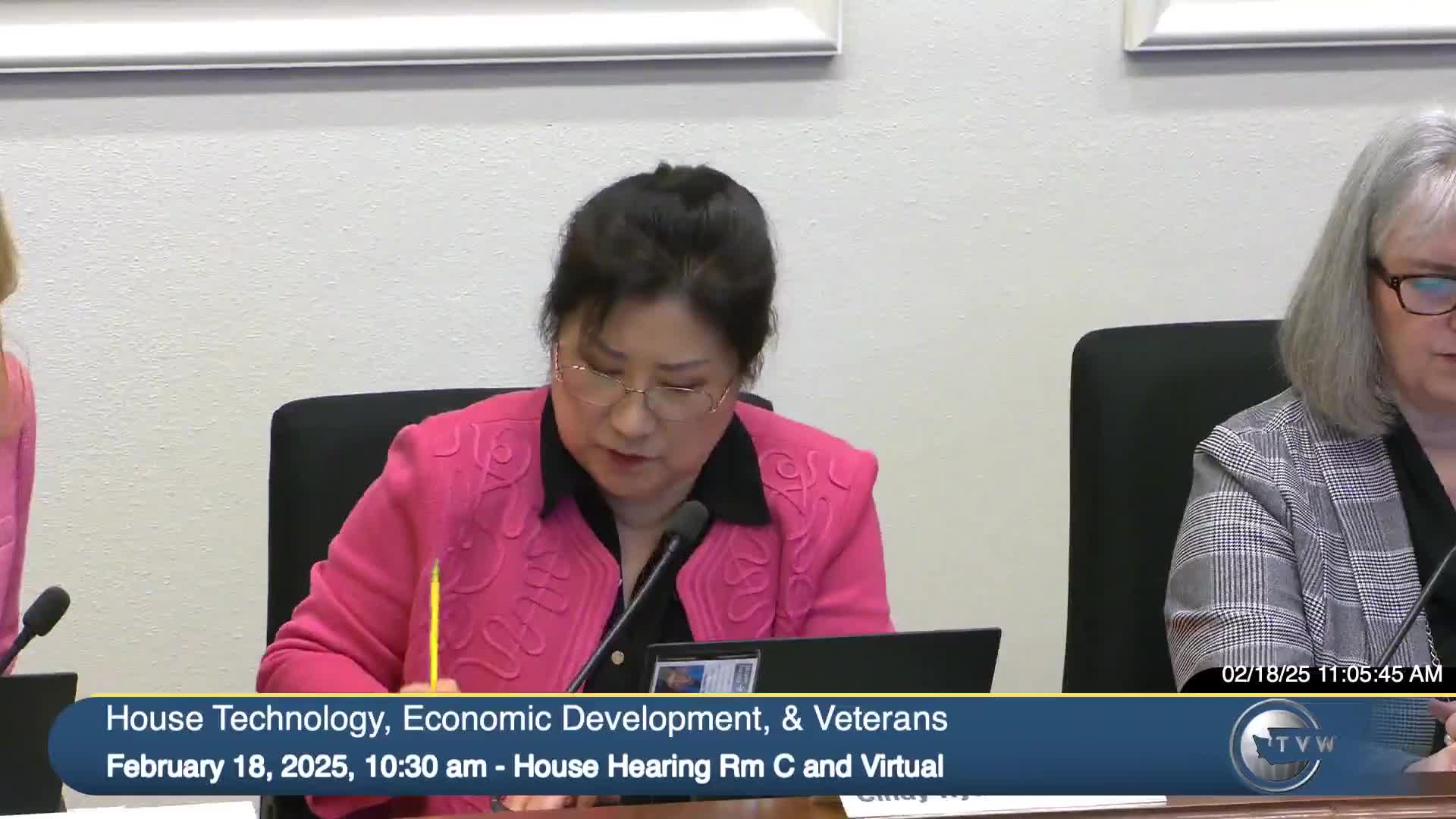Committee advances substitute to let large jurisdictions create civilian crisis response teams; labor and scope concerns voiced
Get AI-powered insights, summaries, and transcripts
Subscribe
Summary
A substitute to House Bill 18-16 was reported out of committee with a due-pass recommendation after debate over scope and collective-bargaining issues; the substitute expands authorization to any political subdivision with more than 200,000 residents and requires consultation on qualifications and operations.
The Technology, Economic Development & Veterans Committee on Feb. 18 reported substitute House Bill 18-16 out of committee with a due-pass recommendation after debate about expanding crisis-response teams beyond Seattle and concerns about collective-bargaining and implementation in other jurisdictions.
Martha Whaling, staff to the committee, summarized the proposed substitute (H-1486) as allowing any political subdivision with a population greater than 200,000 to create a crisis-response team that may be deployed in the field to certain 9-1-1 calls. The substitute requires the executive head to consult with active entities to set minimum qualifications, training, deployable areas and hours of operation, and it specifies that the crisis response team is a parallel first responder to law enforcement and fire response and therefore subject to existing collective-bargaining rules.
Representative Thomas, sponsor of the proposed substitute, framed the bill as broadened and stakeholder-informed and urged a yes vote: “No bill is perfect, but this one’s on its way,” Representative Thomas said. Representative Penner and Representative Keaton expressed opposition, saying the substitute substantially expands the bill’s scope and raises unaddressed collective-bargaining and public-safety concerns for jurisdictions beyond Seattle.
During roll call the committee recorded eight ayes and five nays; the committee chair announced the substitute was reported out with a due-pass recommendation.
Why it matters: The substitute changes authorization from a Seattle-centered pilot to a model available to many large jurisdictions. Supporters said it could provide alternative, specialized responses to behavioral-health and crisis calls; opponents argued the substitute has not been sufficiently stakeholdered statewide and could create friction with collective-bargaining obligations.
Ending note: The substitute will move forward to the next stage with a committee recommendation; members and sponsors said they will continue stakeholder engagement on labor and operational details.
